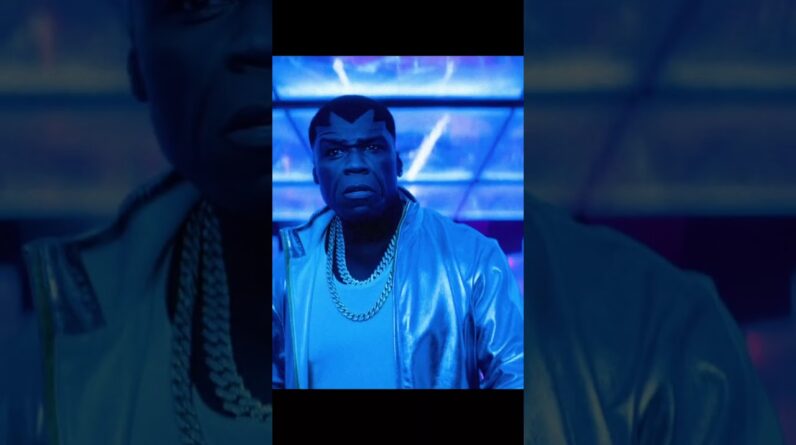Ever heard of the Mpemba effect? 🤔 Dive into this fascinating phenomenon where hot water can freeze faster than cold water! Join our scientist as we explore the science behind this counterintuitive concept, unraveling theories like evaporation, supercooling, and molecular dynamics. 🔬✨
Watch as we conduct experiments and reveal the surprising impact of temperature history on water’s behavior! 🌡️💡 Don’t forget to like, share, and subscribe for more science wonders!
#MpembaEffect #ScienceExperiment #HotVsCold #Physics #LabScience #TheMoreYouKnow
Teh Mpemba Effect: Why Hot Water Freezes faster Than Cold!
What is the Mpemba Effect?
The Mpemba Effect is a captivating phenomenon where hot water freezes faster than cold water under certain conditions. This counterintuitive behavior has intrigued scientists, researchers, and curious minds alike.Named after Tanzanian student Erasto Mpemba, who first observed it in the 1960s, the effect challenges our conventional understanding of thermodynamics.
The Science Behind the Mpemba Effect
Several theories attempt to explain the Mpemba Effect, and while no single theory has been universally accepted, here are some leading hypotheses:
- Evaporation: Hot water may lose mass faster than cold water due to evaporation, leading to a smaller volume that can freeze quicker.
- convection: Hot water creates more vigorous convection currents, allowing for a more uniform cooling process.
- Supercooling: Cold water might supercool-reaching below its freezing point without solidifying-before it actually freezes.
- Hydrogen Bonding: The structure of hot water molecules may alter, affecting how they bond and freeze.
Previous Research and Experiments
Over the years, various experiments have been conducted to observe the Mpemba Effect. one notable experiment demonstrated that two identical trays of water (one hot and one cold) were placed in the same freezer. the results showed that the hot water froze faster, corroborating the mpemba Effect.
Benefits of Understanding the Mpemba Effect
the Mpemba Effect does more than just pique curiosity; it has practical implications in various fields:
- Ice Production: In industrial processes where ice production is essential, utilizing the Mpemba Effect can lead to time and energy savings.
- Cryogenics: Understanding freezing dynamics can aid in developing better cryogenic preservation methods for biological samples.
- Climate Studies: Insights from the Mpemba Effect can enhance models focusing on ice formation in climate science.
Case Studies and first-Hand Experiences
Let’s explore a couple of case studies that illustrate the Mpemba Effect in action.
Case study 1: Laboratory Experiments
In a controlled laboratory experiment,researchers observed that when they froze hot water in different containers (metal,plastic),the hot water consistently froze faster than its cold counterpart. The metal container exhibited the most dramatic results-suggesting that the material used can influence the freezing rate.
Case Study 2: Everyday Experiences
A group of high school science students conducted an experiment mimicking Mpemba’s finding. They filled two bowls with water, one hot and one cold, and placed them side by side in a freezer. In several trials, the hot water often froze solid while the cold water remained unfrozen, impressing both students and teachers alike!
Practical Tips for Harnessing the mpemba Effect
Here are some tips for those interested in experimenting with the Mpemba Effect in their own spaces:
- Use Distilled Water: pure water may react differently than tap water due to dissolved minerals.
- Choose the Right Container: Metal containers usually yield better results compared to plastic ones due to superior thermal conductivity.
- Control Your Environment: Ensure the freezer is set to a consistent temperature to avoid external temperature fluctuations.
Common Misconceptions
Despite the curiosity surrounding the Mpemba effect, several misconceptions prevail:
- It Happens Every time: The Mpemba Effect does not occur uniformly; conditions must be just right.
- Universal Acceptance: Not all scientists agree on the mechanisms behind the effect, as more research is needed.
More about Water and its Unique Properties
Water is a unique substance with properties that have significant implications on the Mpemba Effect. Here’s a rapid overview:
| Property | Description |
|---|---|
| Density | Water is most dense at 4°C, making ice less dense and allowing it to float. |
| Boiling Point | Water boils at 100°C and can undergo various phases, affecting freezing dynamics. |
| Hydrogen Bonds | These bonds allow for unique behaviors like expansion when frozen and various states of matter. |
FAQs About the Mpemba Effect
Here’s a quick FAQ section to address some common questions about the mpemba Effect:
What is the Mpemba Effect’s significance in everyday life?
Understanding this phenomenon can lead to greater efficiencies in ice production, cooking, and even climate modeling.
Can the Mpemba Effect be replicated at home?
Yes, with the right conditions and experiments, you can replicate this effect at home and observe how hot water can freeze faster.
Is the Mpemba Effect the same in all environments?
No, the effect is sensitive to environmental conditions, like freezer temperature, humidity, and the type of container used.






